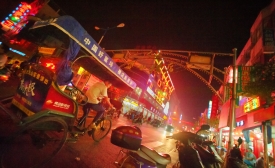europe
The problem facing the Administration is that international impatience with the stalled U.S. peace process has reached a point where more photo-op diplomacy won't suffice. The world wants to see progress on a two-state solution, and believes Israel has to be pressed on the matter.
The blistering farewell speech to NATO by U.S. defense secretary Robert Gates warning of a "dim, if not dismal" future for the Alliance drew the Western public's attention to a longstanding debate about the state of the transatlantic relationship, with prominent commenters voicing concern about much more than just a two-tiered defensive alliance.
By no means has Turkey emerged as a mature power. Its handling of events in Syria and other countries - consisting mostly of rhetoric - shows that it is has yet to assume a position to influence, let alone manage, events on its periphery. But it is still early in the game.
Sunday's election in Turkey was another reminder of the country’s astonishing rise, which has been one of the most dramatic geopolitical stories of the last decade. Turkey has become not just a safe haven, but a model for what many Arabs would like to see their countries become. Finding a way to stabilize the ever-more-turbulent Middle East is Turkey’s most urgent task.

Sherine B. Walton, Editor-in-Chief
Naomi Leight, Managing Editor
Tracy Bloom, Associate Editor
South Korea and Europe appear to be engaged in a bit of mutual admiration musically these days. In both cases, the news stories were about one nation’s culture rubbing off on another. And both got more attention in the country that was proud of its influence and less attention in the place where the action was happening.
A rising power with a vibrant, free economy and a U.S. ally that aspires to join the European Union, Turkey is held up as an example of marrying Islam and democracy and has been an oasis of stability in a region convulsed by "Arab Spring" uprisings.
Gates... spoke of NATO turning into a “two-tiered alliance” where the very few... take on the “hard power” combat assignments. Meanwhile, a majority limits itself to “soft power” work such as delivering humanitarian and development aid and, at most, to participating in peacekeeping missions.







